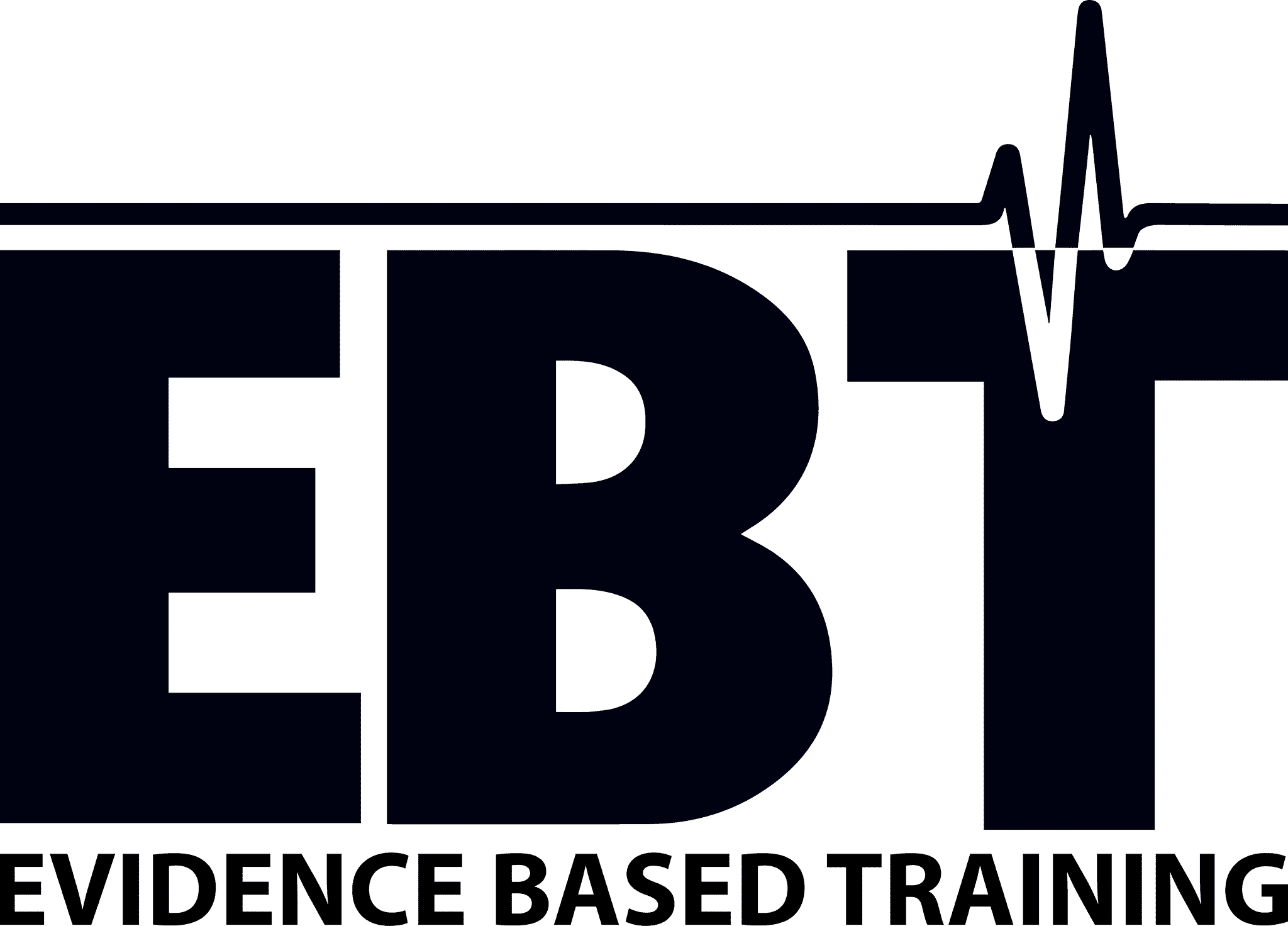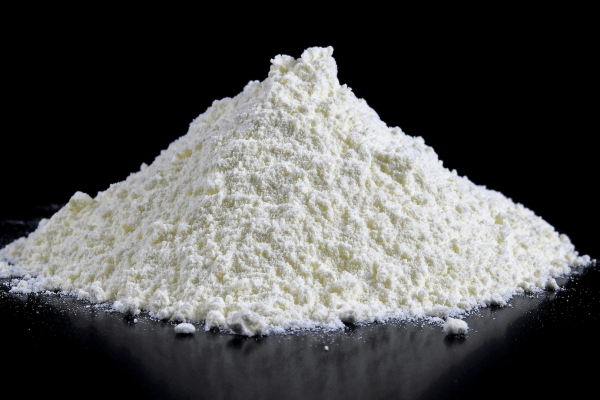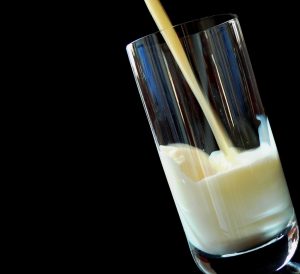2. If dieting 2.8g/kg of body weight is a good idea
3. Lifting weights is essential for muscle protein synthesis (MPS)
4. Post workout 30-40g of protein will be suitable
5. Adding a pre-sleep protein serving of ~40g maximizes MPS
6. Leucine threshold is around 2-3g per meal to trigger MPS
7. Not all protein supplements are created equally
8. Spreading protein throughout the day is optimal
9. There is no such thing as a 30-45min anabolic window
10. No direct studies comparing whole foods vs. protein
The Introductory Protein Bible
With so much information about protein, this article is going to set some things straight. Protein is the building block of muscle and is made up of 20 different amino acids. Only some amino acids are essential (EAAs), while others are non-essential. There are some conditionally essential amino acids: arginine, cysteine, glutamine, glycine, proline, tyrosine. They are not usually essential but can be in times of stress and illness.
Protein helps you build muscle mostly by boosting muscle protein synthesis (MPS), and to some extent by limiting muscle protein breakdown, though this rarely is a problem unless you are on certain medication or in a huge caloric deficit. When MPS is higher than muscle protein breakdown, you are in so-called positive muscle protein balance. This means muscle gains over time. In some cases these gains might be very small, which is why it is better to look at studies actually measuring muscle mass gains rather than MPS gains. The problem with studies measuring muscle mass is that they need to have many participants or be very long term to be able to detect any meaningful gains. This article will thus use both short term MPS studies and long-term muscle mass studies to give recommendations on protein intake.
HOW MUCH PROTEIN DO I NEED DURING THE ENTIRE DAY?
You need 1.6 – 2.2 g/kg body weight as a decent recommendation based on a meta-analysis of many studies on the topic. [1] This can quickly be unreasonable if someone is very obese, and for very overweight people, intakes should be based on lean body mass (total weight minus fat weight) rather than total body weight.
In order to prevent muscle loss when dieting, protein needs are probably higher. We say probably since there isn’t that much research comparing 1.6 – 2.2 g/kg to higher protein intakes while dieting, thus there isn’t strong evidence to support higher protein intakes, and benefits are probably small. The biggest stimulant for MPS is lifting weights, which is why your priority should be to keep lifting when dieting.
At the same time there is evidence that higher protein intakes can make you feel fuller and more satisfied with your diet while improving your mood. This could explain why studies where people have very high protein intakes while bulking results in less fat mass gain. It seems to limit fat gain during a bulk (research by Antonio et al). A good recommendation by Eric Helms is to maximally consume about 2.8 g protein per kg of total body mass (roughly 1.3g/lb), especially when cutting. When bulking, you will do well between 1.6-2.2 g/kg, but if you are the type of person who overeats when bulking, sticking to a 2.8 g/kg will probably keep you full enough to prevent you from overeating.
For people on a plant-based diet, protein needs are generally higher and requires variety, both when bulking and diet ingredients.
HOW MUCH PROTEIN DO I NEED POST WORKOUT?
All protein is not created equal. We know that the EAAs are the dietary aspect of protein which are the most important. The EAA leucine seems to be important, but all EAAs are needed. To maximize MPS at rest, you need 10 g of EAA containing >2g of leucine. Taking 20 grams of a high-quality protein powder (whey) will meet this requirement.
The recommendation above is what seems to be optimal AT REST (that is, if you haven’t been lifting and just eat protein). After lifting, however, the picture is less clear. We know that comparing 25 g of whey with a smaller 6.25 g portion of whey with added leucine (to make leucine content equal) have similar MPS benefits at rest, while 25 g whey does better post-workout. Same goes for whey vs soy protein. Whey does better post workout, but no difference was seen at rest. Seeing how 25 g whey has more EAAs than 6.25 g whey with added leucine and also more EAAs than soy protein, the body seems to be better at absorbing EAAs post workout.
We also know that going from 10 g to 20 g of protein will boost MPS by 20%, while doubling from 20 g to 40 g only boosts MPS by an additional 10-20%. There seems to be a diminishing return relationship. So given everything above, we would say 30-40 g seems to be a good amount of post-workout protein to consume in order to optimize the “protein prescription”.
To make things even more complicated, needs seem to vary with age. Elderly can require almost 70% more protein to maximize MPS at rest. People with lots of muscle might also need more protein, but there are no studies on this so it’s mostly speculation. If you want to learn more about protein needs in older people you can listen to our podcast on Spotify with Richie Kirwan. We discuss sarcopenia, protein intake for elderly and how to prevent muscle loss.
SHOULD YOU EAT PROTEIN BEFORE SLEEP?
We know that you need protein throughout the day to optimize MPS but you could use a protein boost before sleep. We know that extra protein before sleep increases overnight MPS, countering the catabolic effect of the night (see figure below). [2] This practice can lead to increased muscle mass gains if done over time. [3]
There isn’t something magical about pre-sleep protein, it represents an opportunity to optimize MPS. As it is very important to reach your total protein intake, if you are looking to maximize everything then you should incorporate a pre-sleep protein meal. Is has a potential upside for muscle growth. We talked about this because it’s a very common missed feeding opportunity.
How much protein do you need pre-sleep? While 20g of protein seems to kick-start MPS during the day, for the overnight MPS it seems that 40g of protein is the magic number. This increased value is speculated because of the longer period during the night when you don’t eat. In layman terms: you need more protein to sustain MPS for a longer time. [2], [4]
WHAT PROTEIN SUPPLEMENTS ARE THE BEST?
Milk based powders include whey and casein. Plant based powders include soy, pea, seeds and much more, also there are a bunch of vegan mixes of different plants available.
At rest we know that whey and soy can be equally effective at boosting MPS, but whey does better than soy post-workout. Whey also boosts MPS better than casein in the first 4 hours post-workout, but studies looking at MPS over 5 hours find no difference between whey and casein.
Not all casein is created equal though. Micellar casein is absorbed slower than rapid caseinate, and rapid caseinate thus boost MPS similarly to whey.
We would recommend sticking to whey if your stomach tolerates it. Use casein if you know you will be fasting or if you know you won’t be able to get a post workout protein shake, but these recommendations are speculative and we don’t know of any studies on the topic.
For plant-based protein supplements, read our Vegan Athlete Blueprint for the full breakdown on how to combine protein sources.
There are also isolated amino acid supplements: EAAs, BCAAs and single amino acids. BCAAs are leucine, isoleucine and valine, and as you know leucine is the most important amino acid for gains. But simply supplementing with leucine doesn’t help add muscle mass according to long term studies measuring muscle mass. Adding leucine to a source with enough leucine already (a large scoop of protein) doesn’t benefit MPS but adding it to a protein source lacking EAAs (a small scoop of protein) DOES boost MPS.
Simply put: leucine only has a benefit for muscle gains up to a certain level, known as the leucine threshold. Eating more leucine after the leucine threshold is reached won’t have any benefit. If our goal is to save calories, it could be a good idea to replace whey with an EAA shake, as studies show that a post workout portion of 3 g of EAA powder is as effective as a 20 g whey portion (which would contain 9.6 g of EAA).
Early research indicates that 2-3 g, or up to 0.05 g/kg bodyweight, of leucine are required to maximize MPS. [5][6][7] However once this threshold has been reached, a protein’s beneficial effects on MPS effectively plateaus. For example, consuming 40 grams of egg protein (4 grams of leucine) did not enhance MPS over 20 grams of egg protein (2 grams of leucine) [8].
Thus in order to determine how much protein from a specific source is required to elicit the maximal response it may be useful to back calculate how much leucine is contained in the source.
We know that whey protein has aprox. 12% leucine/gram of protein. This means that 27g of protein is needed from whey to achieve leucine threshold for maximum gains. With this in mind you will need different quantities of protein and you will need to know what percentage of leucine it has in order for you to maximize gains. Most of the studies mentioned looked at people weighing an average of 70-75 kgs. If you weigh less than this you should aim for the lower end of the threshold whereas if you weigh more you would want to achieve the higher end. [5]
Keep in mind that higher plasma leucine levels don t always result in high MPS. [9] Carbs and fats may reduce the plasma leucine peak and thereby reduce the increase in MPS (when taking 2.26g leucine with 6.25g protein). [10] [11] BUT if you take 4.25g of leucine altogether with carbs and fats it might increase MPS response. But keep in mind we are talking about supplements. When talking about real food and mixed meals, the MPS response can be even lower than in the aforementioned studies so you could think of extra-leucine supplementation with mixed meals. Taking it might be more beneficial with 15-30 minutes before the meal.

WHAT PROTEIN FOOD SOURCES ARE THE BEST?
When it comes to food sources, there is less research. Whole foods can have a better impact on MPS then isolated supplements, probably because they contain other nutrients which can help the body boost MPS. For example, insulin can help stop muscle protein breakdown and can help shuttle amino acids into your muscles (an important step for MPS to be able to increase), but only a small amount of insulin is needed. Insulin is mainly released when we eat carbs, but also when we eat protein, and the amount released from your good dose of protein is enough to stop muscle protein breakdown.
Still, if you are eating smaller amounts of protein in a meal, adding in carbs can help boost MPS. One study found that adding carbs to a 6 gram amino acid shake boosted MPS compared to amino acids only, and after 12 weeks of lifting, supplementing with amino acids combined with carbs lead to more growth of fast twitch muscle fibers (the stronger, larger, more explosive muscle fiber type) compared to supplementing with amino acids only.
Foods usually also contain some fat. So how does this affect MPS? Unfortunately, we know of no study comparing MPS from supplementing with protein with vs without added fat. What IS known is that omega-3 fats (more specifically, LC n-3 PUFAs) seem to make muscles more sensitive to MPS boosts, meaning that combining a diet high in omega-3s should enhance the MPS effects from for example protein or insulin. Indeed, one study found that long-time supplementation with omega-3s boosted muscle mass.
From the above you can thus see how certain fats and, in some cases, carbs can help boost MPS. Thus, in theory, 30 g of high quality protein from whole foods could do a better job at stimulating MPS than 30 g of high quality protein from a powder. This is somewhat speculative though, as it hasn’t been directly studied.
To look at the same food prepared in different ways, one study compared beef steak to the same amount of minced beef and found no differences AT REST. Minced beef protein is absorbed faster, so protein absorption rate doesn’t seem to matter (at rest at least). Similarly, as we previously mentioned, there isn’t a long-term difference in MPS between fast absorbed whey and slow absorbed casein. The degree of cooking can matter, though, as one study found that more protein was absorbed from cooked eggs compared to raw ones.
We know of no short term MPS studies comparing animal food sources to plant food sources, but we do know that less protein is generally absorbed from plant foods, making food choices important for plant-based athletes.
WHAT IS THE BEST TIME TO EAT PROTEIN?
Timing is a factor that people obsess with, but it is far less important than the total amount of daily protein that you consume. If you had to choose between a perfectly timed dose of 40 grams of protein for the entire day, or a “horribly” timed dose of 200 grams of protein, the 200 grams will win every time.
Timing COULD help but will give you less bang for your buck compared to your total dose. Bodybuilders and elite athletes looking for every 0.1% of gains that they can add should however aim to optimize timing also. Here we offer you a practical takeaway on how to do it.
Studies comparing taking a post-workout EAA shake 1 vs 2 vs 3 hours after workouts find no differences in muscle protein balance! MPS also doesn’t differ when comparing protein pre vs post workout.
Still, these are short term studies, and studies looking at MPS during a 24-hour period find that spreading your protein out over three equal meals does better than having most (>70%) of your protein for dinner. Since most people have a lot of protein for dinner and less for breakfast, we would suggest you increase protein intake at breakfast and try to get your protein in within 3 hours of your workout, but don’t obsess about this. Most people simply need to reach their total protein intake by the end of the day.
IS THERE AN ANABOLIC WINDOW?
This meta-analysis (collection of studies) which concluded that protein timing doesn’t matter when looking at studies measuring GAINS. It turned out that studies where protein timing lead to more gains simply did so because the participants consumed MORE protein in general. [12]
Some people have asked us if they can consume all of their protein in one meal. While this certainly is possible, it probably isn’t optimal, if considering muscle protein synthesis (MPS).
MPS is an indirect marker of gains which is used to predict gains, but short term MPS increases don’t predict long term gains. This is probably because MPS is only part of the equation, with muscle protein breakdown (MPB) being equally important, but harder to measure in studies.
Still, spreading your protein out over the day has been shown to maximize total MPS throughout the whole day, by professor Stu Phillips. But keep in mind that you need resistance training to maximize MPS.
Given this, it is reasonable to still aim for a more spread out intake of protein, though the benefit is probably minor. Brad and Alan suggest getting protein at least 3 hours before or 3 hours after your workout. In practice, this means that most people don’t need to worry about protein timing. [12]
This is a good example of how things are not at all black and white.
Author: DR. Artin Entezarjou
Editor: Vlad G. Rădulescu
[2] P. T. Res et al., “Protein ingestion before sleep improves postexercise overnight recovery,” Med. Sci. Sports Exerc., 2012, doi: 10.1249/MSS.0b013e31824cc363.
[3] T. Snijders et al., “Protein ingestion before sleep increases muscle mass and strength gains during prolonged resistance-type exercise training in healthy young men,” J. Nutr., 2015, doi: 10.3945/jn.114.208371.
[4] J. Trommelen and L. J. C. van Loon, “Pre-sleep protein ingestion to improve the skeletal muscle adaptive response to exercise training,” Nutrients. 2016, doi: 10.3390/nu8120763.
[5] L. E. Norton and G. J. Wilson, “Optimal protein intake to maximize muscle protein synthesis examinations of optimal meal protein intake and frequency for athletes,” Agro Food Ind. Hi. Tech., 2009.
[6] D. Paddon-Jones et al., “Amino acid ingestion improves muscle protein synthesis in the young and elderly,” Am. J. Physiol. – Endocrinol. Metab., 2004, doi: 10.1152/ajpendo.00368.2003.
[7] K. D. Tipton, A. A. Ferrando, S. M. Phillips, D. Doyle, and R. R. Wolfe, “Postexercise net protein synthesis in human muscle from orally administered amino acids,” Am. J. Physiol. – Endocrinol. Metab., 1999, doi: 10.1152/ajpendo.1999.276.4.e628.
[8] J. E. Tang, D. R. Moore, G. W. Kujbida, M. A. Tarnopolsky, and S. M. Phillips, “Ingestion of whey hydrolysate, casein, or soy protein isolate: Effects on mixed muscle protein synthesis at rest and following resistance exercise in young men,” J. Appl. Physiol., 2009, doi: 10.1152/japplphysiol.00076.2009.
[9] S. H. M. Gorissen, N. A. Burd, H. M. Hamer, A. P. Gijsen, B. B. Groen, and L. J. C. Van Loon, “Carbohydrate coingestion delays dietary protein digestion and absorption but does not modulate postprandial muscle protein accretion,” J. Clin. Endocrinol. Metab., 2014, doi: 10.1210/jc.2013-3970.
[10] T. A. Churchward-Venne et al., “Leucine supplementation of a low-protein mixed macronutrient beverage enhances myofibrillar protein synthesis in young men: A double-blind, randomized trial1-3,” Am. J. Clin. Nutr., 2014, doi: 10.3945/ajcn.113.068775.
[11] T. A. Churchward-Venne et al., “Supplementation of a suboptimal protein dose with leucine or essential amino acids: Effects on myofibrillar protein synthesis at rest and following resistance exercise in men,” J. Physiol., 2012, doi: 10.1113/jphysiol.2012.228833.
[12] A. A. Aragon and B. J. Schoenfeld, “Nutrient timing revisited: Is there a post-exercise anabolic window?,” J. Int. Soc. Sports Nutr., 2013, doi: 10.1186/1550-2783-10-5.
[13] Perfecting protein intake for atheletes: How much, What, and When? (and Beyond). Jorn Trommelen. Strongerbyscience.com










